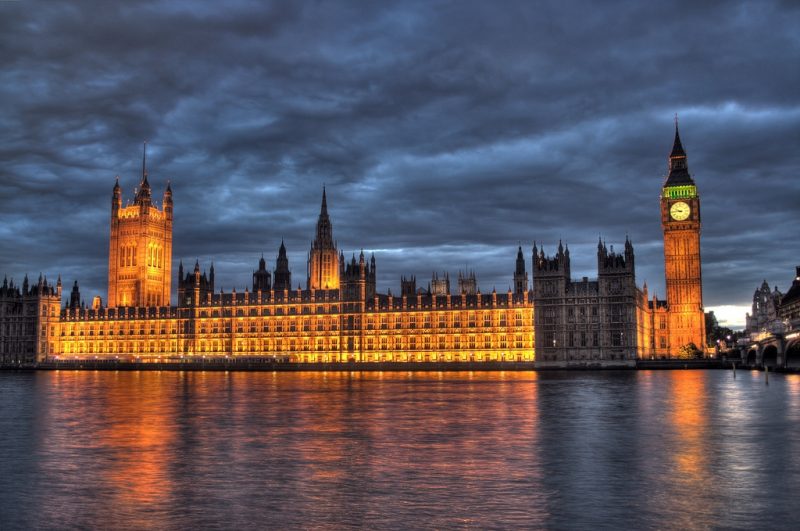A UK net-zero target must inspire global action
Government experts have recommended the UK goes carbon-neutral by 2050. Is this ambitious enough, and how can other countries follow suit?

Update
Since publication, the UK government on 27th June 2019 set into law its target to bring all greenhouse gas emissions to net zero by 2050. While broadly accepting UK CCC recommendations, some questions remain on whether the target has weaker ambition around aviation, shipping and international offsetting.
----
The UK Committee on Climate Change’s (CCC) latest report comes at a perfect time, hot on the heels of the House of Commons motion to declare a climate emergency, the ground-breaking Extinction Rebellion and school climate strikes, and a groundswell of mass public support for climate action.
It sets out in detail a new level of ambition for the UK government, calling for net-zero emissions by 2050. The Green Economy Coalition welcomes the report as a clear roadmap for how modern economies around the globe might transition to a green, climate-safe economy. But we must be clear: the CCC’s recommendations, while a step change above the government’s current level of ambition, do not go far enough.
Absolute zero
First, the positives. The CCC’s report makes it clear that net-zero is the new normal on climate change policy. Anything less is woefully inadequate. Legally-binding net zero targets must be replicated around the world if we are to achieve the goals of the Paris Agreement and restore balance to our climate.
Nordic countries like Sweden, Denmark and Norway are already leading the way on net-zero legislation, but these pioneering laws still don’t go far enough on hard-to-reach sectors like aviation and shipping, and their reliance on off-setting.
It’s vital that the UK, France and others start to walk the walk and lay down binding legislation to raise the bar yet further; not least as a model for other countries to match ambition with commitment. We therefore urge the UK government to accept the findings of its own climate experts, and adapt as a matter of urgency an ambitious net zero policy.
Process realism vs outcome realism
But let’s not get too carried away. A target of net-zero by 2050 should be the new baseline, the minimum acceptable starting point for a response to climate change. The CCC states that net-zero by 2050 is the “highest possible ambition” and meets the need for the UK to “go beyond what is required [by the Paris agreement] for the world overall”.
But these points are debatable. They are most plausible only within the constraints of existing technology and perceived ‘policy credibility’ that the CCC has limited itself to, in order to head off the worst of the anti-science, bad faith critiques.
Staying within the boundaries of what seems most “realistic” in terms of policy processes and technology is a sensible approach. But the truth is that we need a more ambitious target if the world is to have a realistic chance of avoiding catastrophic levels of warming - one that makes use of the more ‘speculative options’ described by the report.
We shouldn’t exclude the possibility that the cost curves of wider sustainable technology will prove - once again - to be overcautious. Nor should we ignore the enormous potential for substantial societal and behavioural changes that reshape the limits of what is politically “realistic”. This is where the CCC cannot go; but people must.
“ But who will own and profit from all this new green investment? If it’s just a bunch of huge, unaccountable corporations, then the new economy won’t be very different from the old one.”
The technology and the economics are clear for a 2050 target. But if we are to keep warming within safe limits, we need mass social movements that can break the shackles of what seems politically plausible, reshape consumer behaviour toward sustainability, and demand faster, more comprehensive change.
Getting beyond carbon – a new deal with nature
Ambitious as net-zero already is, there’s more to sustainability than just carbon. It’s fantastic that UK political parties and the House of Commons are now using the language of climate emergency, but we need to recognise that our ongoing environmental crisis is not limited to climate change. Acting on this is beyond the mandate of the CCC, but it is important to take stock.
Biodiversity is collapsing, topsoil is disappearing, and we’re well into the red zone on several critical planetary boundaries. To address this, we need to transition to a fully inclusive green economy that recognises planetary limits, respects and protects environmental wealth, and allows the natural world that supports all life on earth – including our own – to flourish once again.
We also need to make sure that the transition to a more sustainable future is just and equitable for all. People from across society need a voice in shaping the contours of the new economy, as well as a clear sense that normal people and families will benefit from the policies being introduced. Enter new deliberative democratic processes, as articulated by Extinction Rebellion and others, as a way of empowering people - especially youth - and legitimising change.

Further, everyone knows the green transition is going to require new investment and new green infrastructure - be it low emission vehicles, mass transport, retrofitting homes, or renewable energy generation and storage.
But who will own and profit from all this new investment? If it’s just a bunch of huge, unaccountable corporations focused on maximising shareholder value rather than creating shared prosperity and protecting the planet, then the new economy won’t be very different from the old one. There is fertile ground for Green New Deal policies which describe new ownership models, new ways of distributing wealth, and a new social contract fit for the Anthropocene.
Conclusion
We applaud the publication of the CCC’s recommendations, and we hope they will inspire governments around the world to get real on what needs to be done to avert climate catastrophe.
Carbon is half the story, and net zero by 2050 gets us halfway there. But decarbonisation alone won’t save the planet – however urgently it is delivered. We need to be ambitious on climate, ambitious on nature, and ambitious on people too.
- Chris Hopkins, Green Economy Coalition


